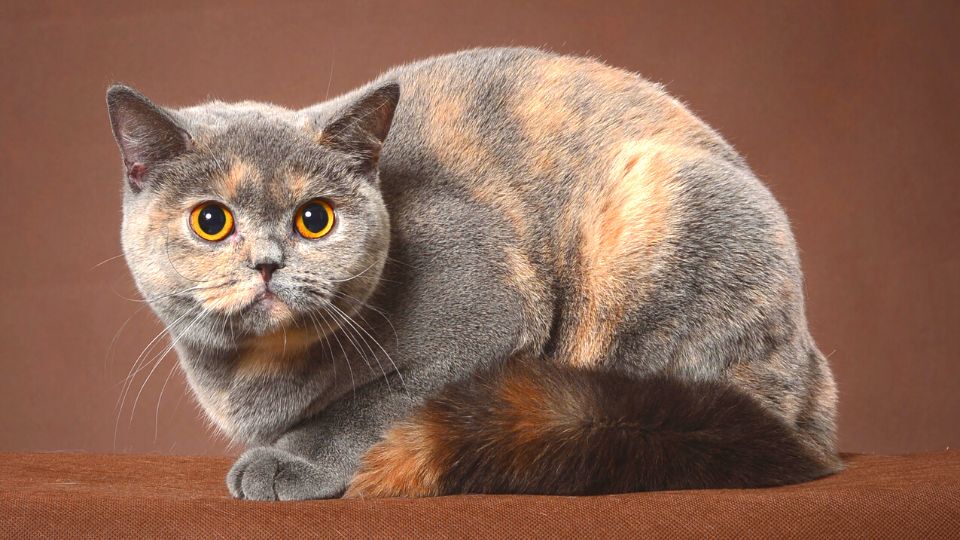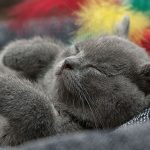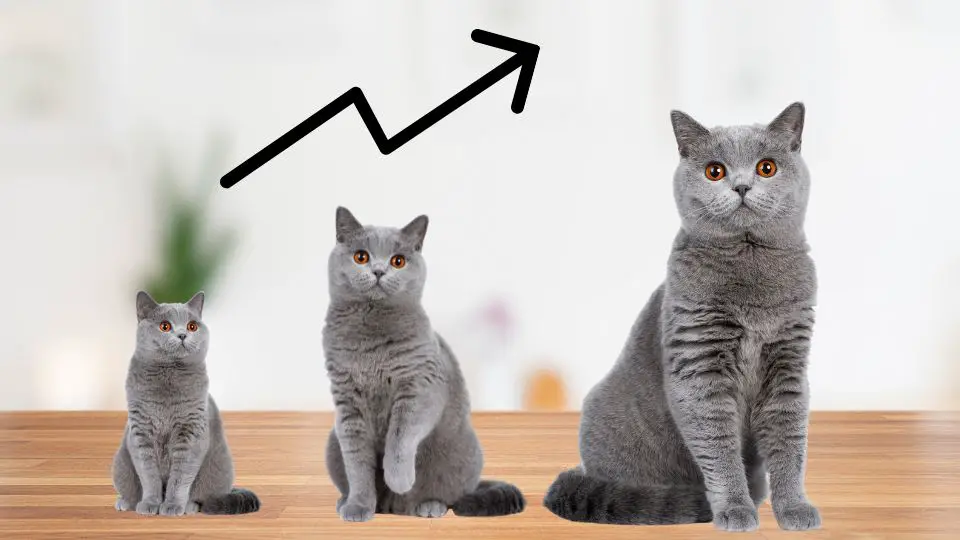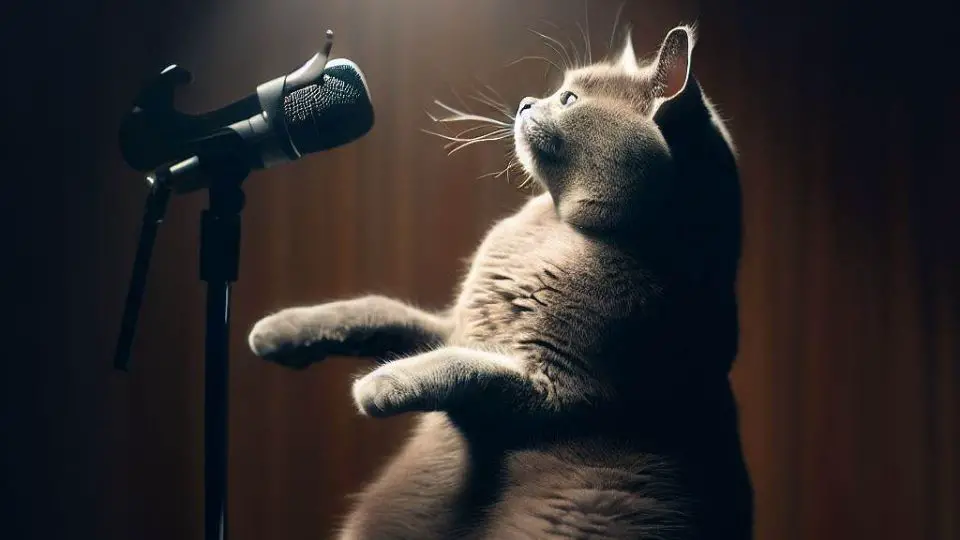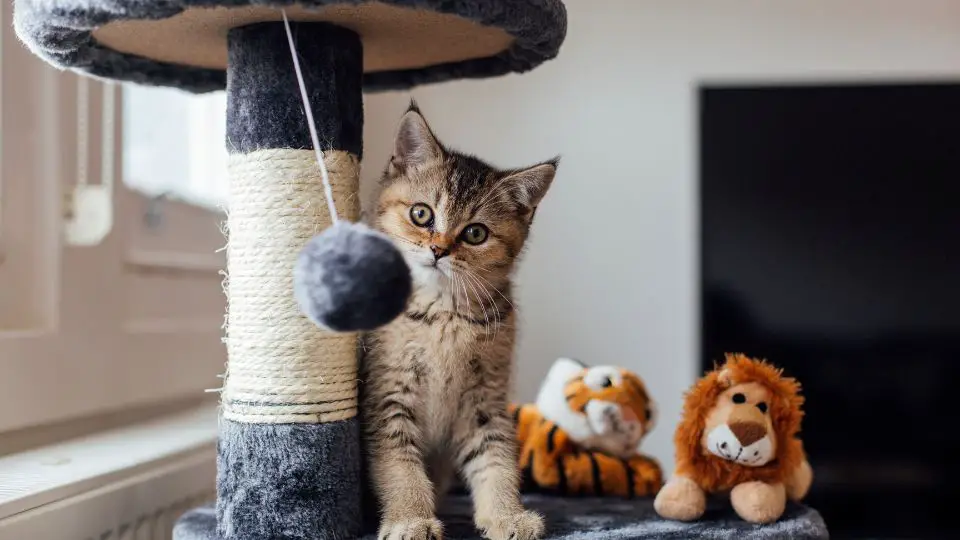British Shorthair cats are known for their calm and laid-back temperament, which makes them a popular choice as indoor pets.
Many cat owners wonder if their British Shorthair should be allowed to roam outside or if they are better off living indoors. While outdoor cats may enjoy the freedom of exploring their surroundings, there are numerous risks associated with outdoor living, such as getting hit by a car or exposure to diseases.
In this article, we’ll explore the benefits of keeping British Shorthairs indoors and how to create a cat-friendly environment that provides them with adequate exercise and mental stimulation.
British Shorthair Characteristics
British Shorthairs are a popular cat breed known for their round faces, muscular build, and thick, plush coat. They are a medium to large-sized cat with a sweet and gentle disposition. These cats have a calm and laid-back temperament, making them well-suited for indoor living.
One of the physical characteristics that make British Shorthairs suitable for indoor living is their coat. Their dense, plush fur is well-suited for colder indoor environments, and they don’t require regular outdoor exercise to keep their coat in good condition. Additionally, their stocky build means they aren’t as prone to jumping or climbing, making them less likely to cause damage indoors.
In terms of their behavior, British Shorthairs are known for their docile and easy-going nature. They are content to lounge around and enjoy quiet companionship, making them ideal for indoor living. These cats are not typically high-energy or demanding, so they don’t require as much space or activity as other breeds might.
However, despite their calm nature, British Shorthairs still require mental and physical stimulation. It’s important to provide them with toys, scratching posts, and climbing structures to keep them entertained and engaged. Regular playtime and attention from their owners can also help prevent boredom and destructive behavior.
Is British Shorthair An Indoor Cat?
Yes, British Shorthairs are well-suited for indoor living. Their calm and laid-back temperament, along with their plush coat and less active lifestyle, make them an ideal indoor companion for many cat lovers.
However, they still require mental and physical stimulation to prevent boredom and destructive behavior. Providing them with toys, scratching posts, climbing structures, and regular playtime and attention can help keep them happy and healthy in their indoor environment.
Why can’t British Shorthairs go outside?
There are several potential dangers that cats, including British Shorthairs, may face outdoors. These dangers can include:
- Traffic Accidents: Outdoor cats are at risk of getting hit by cars, which can result in serious injury or even death.
- Exposure to Diseases: Outdoor cats may come into contact with other cats, animals, or environments that carry harmful bacteria or viruses. This can put them at risk for contracting diseases such as feline leukemia, feline immunodeficiency virus (FIV), and other illnesses.
- Attacks by Other Animals: Outdoor cats may be at risk of attacks from other animals, such as dogs, coyotes, and even larger birds of prey like owls or hawks.
- Poisoning: Cats that roam outdoors may accidentally ingest toxic substances, such as antifreeze or pesticides.
- Parasites: Outdoor cats are at risk of picking up fleas, ticks, and other parasites that can cause health problems.
Overall, the potential risks of allowing a British Shorthair or any other cat to go outside can be significant. Keeping them indoors can help prevent these dangers and keep them safe and healthy.
Additionally, indoor cats are less likely to become lost or stolen, and are generally less likely to engage in destructive behaviors like scratching or marking.
Indoor Living
As a pet owner, you want to ensure that your small pet is happy and healthy. One important consideration is whether or not to keep your cat indoors. While some owners may be tempted to let their cats roam freely outside, there are many reasons why indoor living is the best choice for British Shorthairs.
Benefits of Indoor Living for British Shorthairs
- Protection from outdoor dangers: Outdoor cats face many potential dangers, including being hit by cars, attacked by other animals, or exposed to diseases.
- Longer lifespan: Indoor cats generally live longer than outdoor cats, as they are not exposed to these dangers.
- Lower risk of injury or illness: Indoor cats are less likely to contract illnesses or sustain injuries.
- Better behavior: Indoor cats tend to have better behavior than outdoor cats, as they are not exposed to the stressors of outdoor life.
- Less environmental impact: Keeping your cat indoors helps to reduce their impact on the environment, as they won’t be preying on wildlife or contributing to overpopulation.
Providing Exercise and Mental Stimulation
While indoor living is the best choice for British Shorthairs, it’s important to ensure that they still get enough exercise and mental stimulation. Here are some ways to provide these needs:
- Create a cat-friendly environment: Provide scratching posts, hiding spots, and interactive toys to keep your cat entertained and active.
- Playtime: Spend time playing with your cat each day, using toys that encourage physical activity and mental stimulation.
- Cat trees: A cat tree or climbing tower can provide an excellent source of exercise for your cat, while also providing a comfortable place to rest.
- Adequate space: Make sure your cat has enough space to move around and explore. Consider adding a catio or enclosed outdoor space for additional stimulation.
Is it cruel to keep British Shorthair inside?
It is not cruel to keep British Shorthair cats inside as long as their needs are met. Indoor living can provide a safe and healthy environment for cats, protecting them from potential dangers such as traffic accidents, attacks by other animals, and exposure to diseases. Indoor cats can also have longer lifespans and better overall health.
Outdoor Access
Providing outdoor access for indoor cats can be a great way to provide them with a taste of the outdoors while keeping them safe. Supervised outdoor time is one way to do this, as it allows cats to explore and get some exercise while under your watchful eye. Another option is to create a cat-safe outdoor enclosure, such as a catio, which provides a protected and secure space for cats to play and relax in.
However, it’s important to remember that there are potential risks to allowing cats to roam freely outdoors. These risks include getting hit by a car, exposure to diseases, and attacks by other animals. Consider the impact that outdoor cats can have on local wildlife populations.
Ultimately, the decision to provide outdoor access for your British Shorthair should be based on your individual circumstances and your cat’s personality and needs. If you do decide to provide outdoor access, be sure to do so in a safe and responsible manner to protect your cat’s health and wellbeing.
Do British Shorthairs need to go outside?
British Shorthair cats do not necessarily need to go outside as they can thrive and live happily indoors as long as they receive enough exercise, mental stimulation, and a balanced diet.
However, providing a safe outdoor environment or supervised outdoor time can provide additional mental stimulation and enrichment for indoor cats. Consider the potential risks and dangers of allowing cats to roam freely outdoors and to provide appropriate measures to ensure their safety.
Conclusion
In conclusion, while British Shorthair cats may have an independent nature and enjoy exploring the outdoors, it is generally recommended to keep them as indoor pets to ensure their safety and health.
With proper care and attention, British Shorthairs can thrive in an indoor environment and enjoy a happy and fulfilling life. Providing them with a cat-friendly living space, plenty of mental and physical stimulation, and appropriate nutrition can help keep them content and healthy for many years to come.

